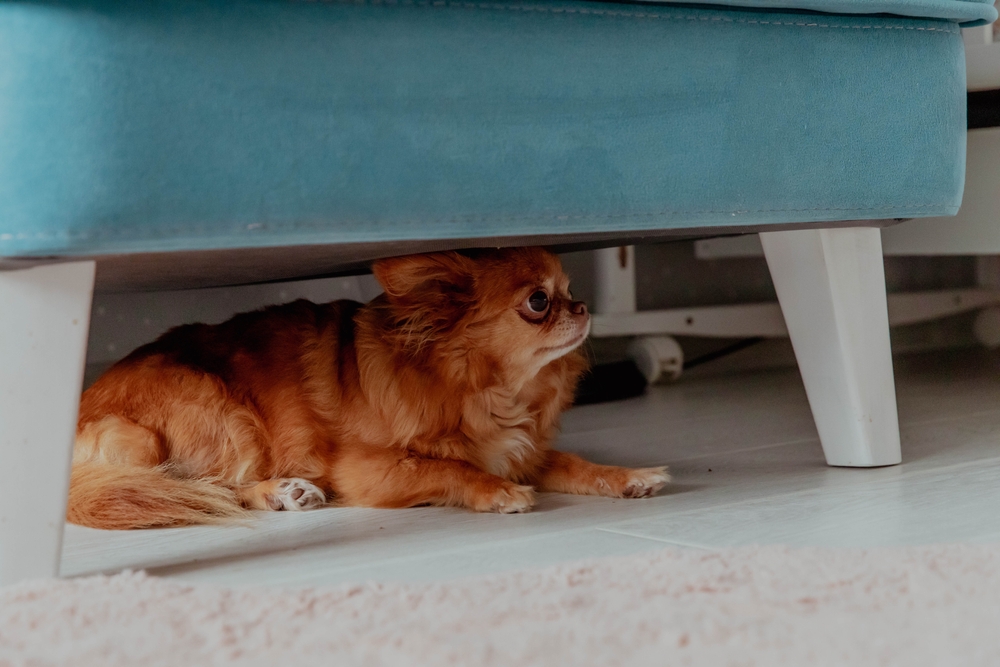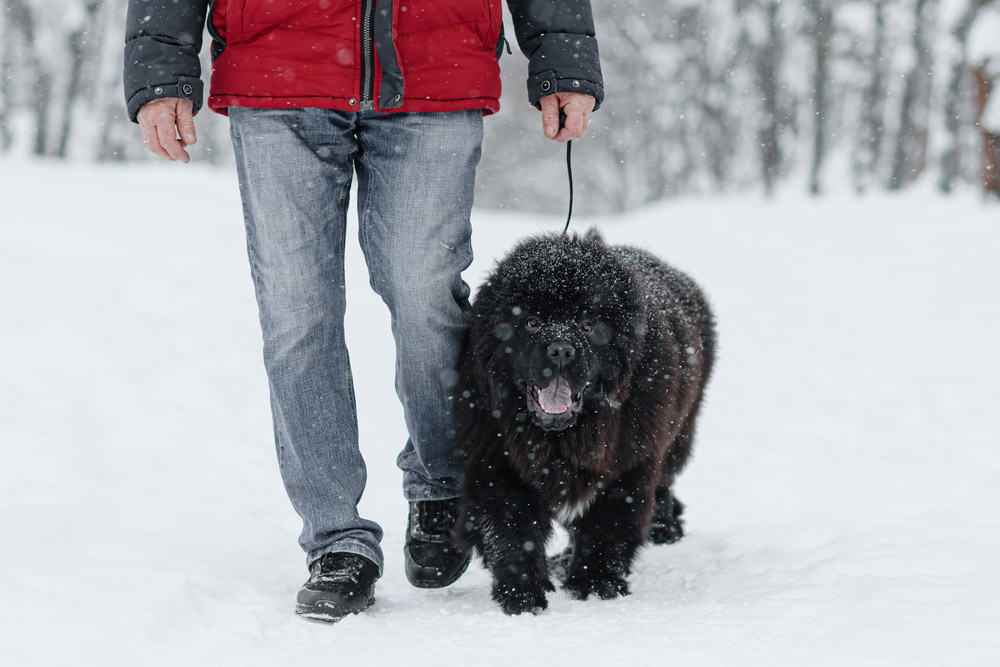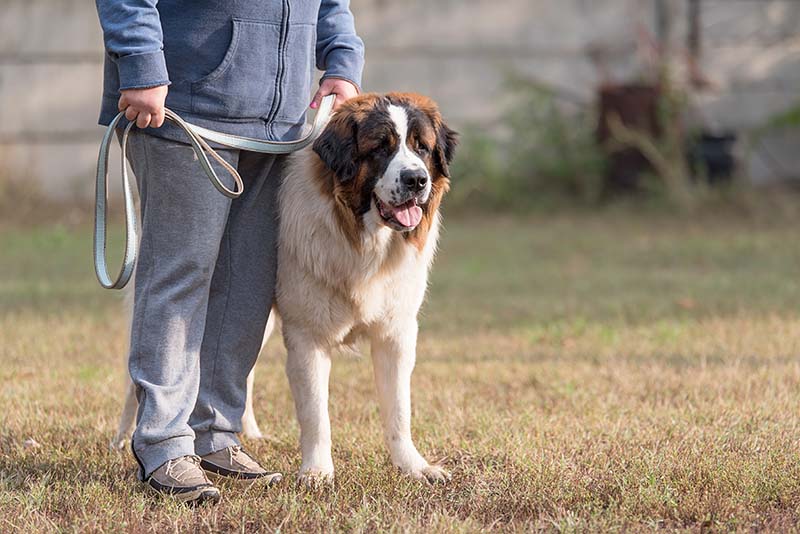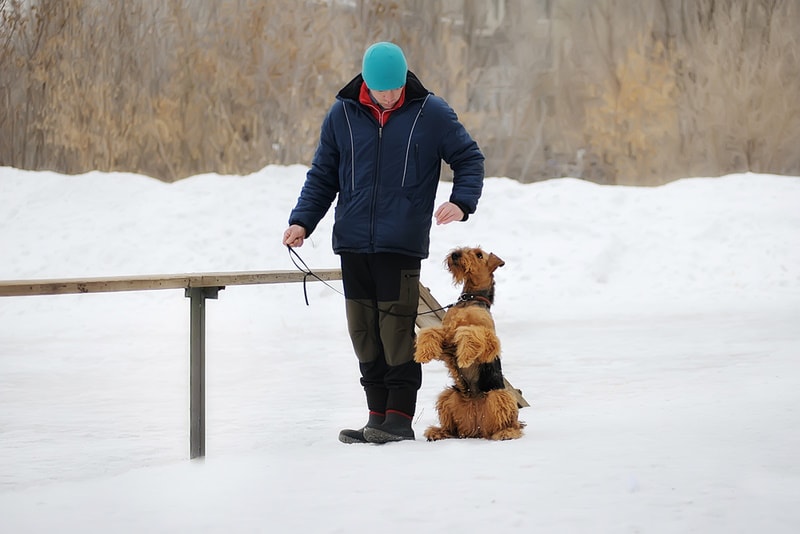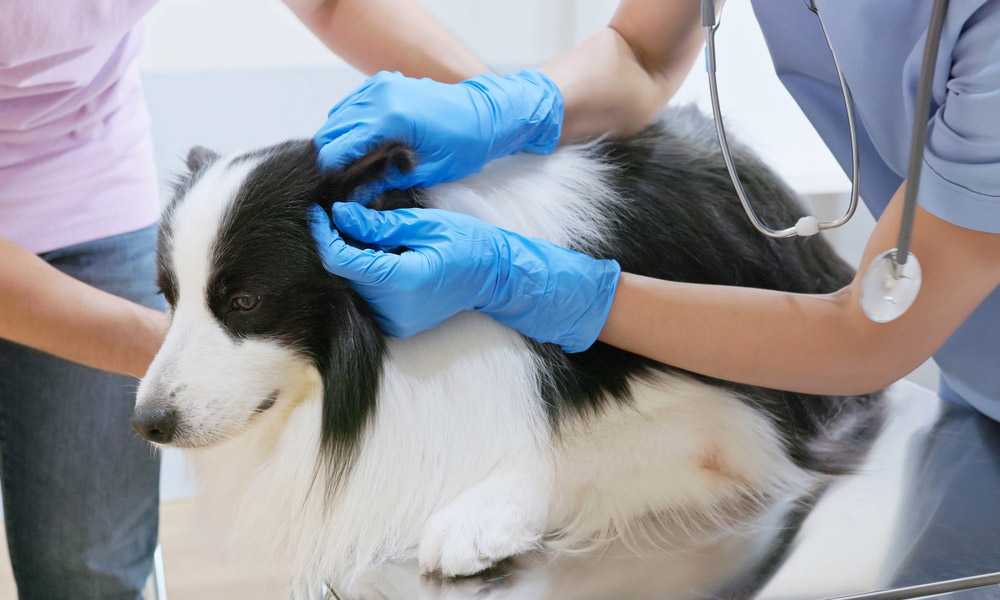Click to Skip Ahead
You want to expose your dog to different situations, but whenever they meet someone new, they’re anxious and cowering. It’s a common experience for many canine owners, but why is your dog afraid of strangers? How can you help them warm up to these situations?
There’s a lot to unpack here, so we created this guide that breaks down everything you need to know.

The 4 Reasons Why Dogs Are Afraid of Strangers
1. Lack of Socialization
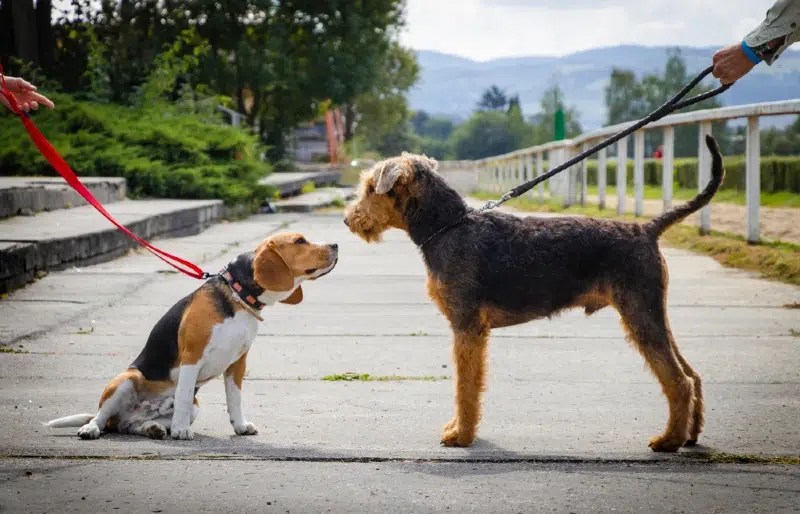
| Likelihood: | High |
| Seriousness: | Moderate |
| Difficulty to Fix: | Moderate |
By far, the most likely reason for a dog to be afraid of strangers is simply that they didn’t get adequate socialization when they were a puppy. The more you socialize your dog, the more likely they’ll warm up to strangers.
If your dog wasn’t properly socialized and is now showing aggressive tendencies, you should seek professional help to create a plan for your pet, since this fear can sometimes lead to aggressive behavior and put people in danger.
2. History of Abuse
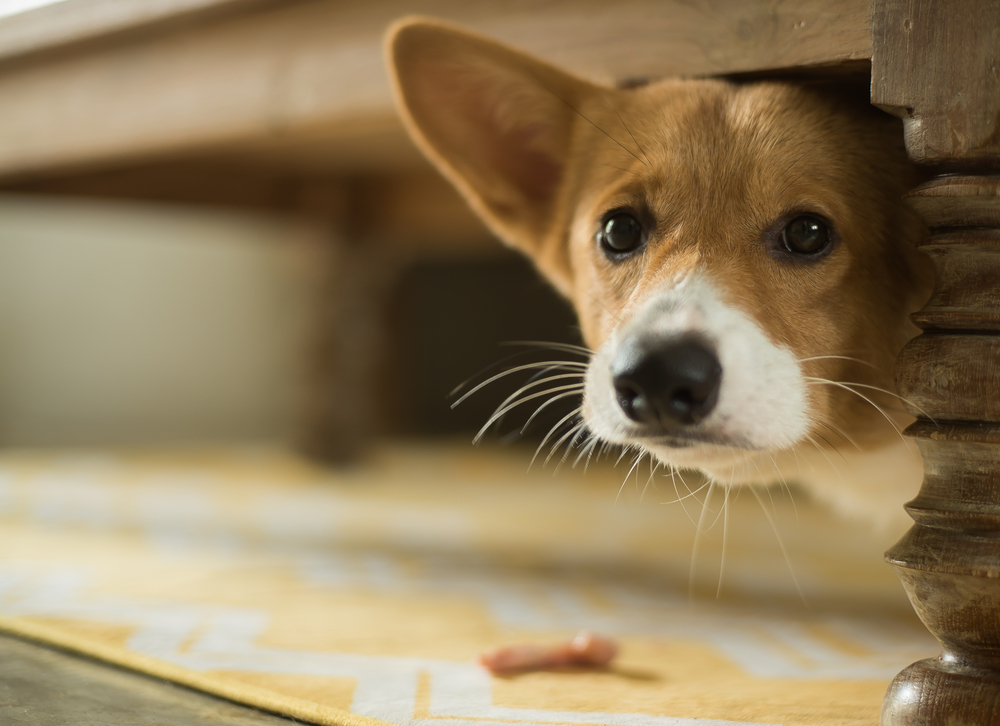
| Likelihood: | Low |
| Seriousness: | High |
| Difficulty to Fix: | Hard |
If you adopt a dog, you may not know what they went through before they met you. If your dog shows fear around new people, it’s possible that they were abused earlier in their life.
This is especially true if they seem to dislike one type of person over another (like if they’re more scared of men than women). If your dog has a history of abuse, behavior modification techniques are the answer, but they’ll likely need a lot of time to adjust and become less fearful.
3. Genetics
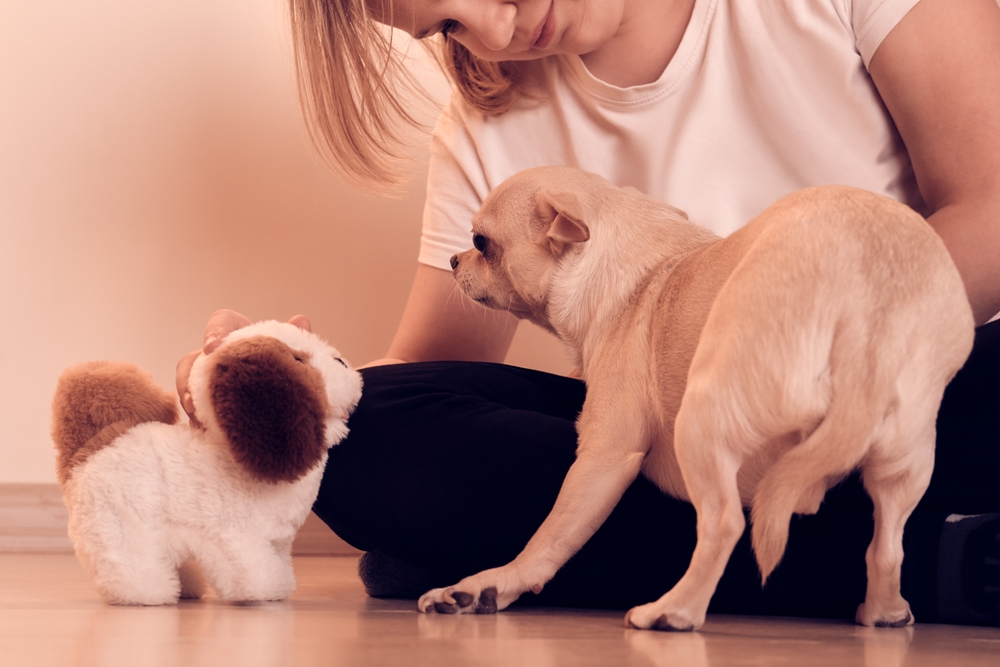
| Likelihood: | Moderate |
| Seriousness: | Moderate |
| Difficulty to Fix: | Moderate |
Some dogs are simply more comfortable around new people than others. Breeds that have a history of working around people or have been bred as companion animals usually warm up to people quickly.
However, it is perfectly normal for some dogs to be more timid than others around strangers. If your dog is timid, do not hesitate to speak to your vet and follow their guidance. They will provide tips on how you can introduce your pet to new dogs and humans gradually. It takes time, but you can expose your dog to several new people and unfamiliar environments to help them become more comfortable and less fearful.
4. Overly Effusive Strangers
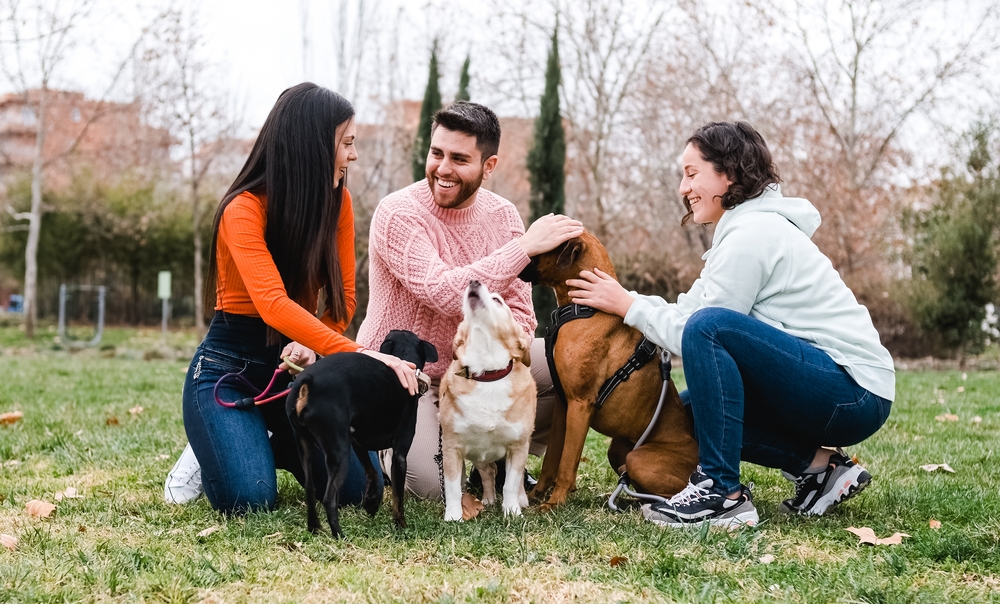
| Likelihood: | Low |
| Seriousness: | Low |
| Difficulty to Fix: | Low |
Your dog might be comfortable with some strangers but not with others. This is likely the consequence of certain people trying to approach them too enthusiastically, without paying attention to their body language. Let strangers know the best way to reach for your dog, and educate them on how your pet prefers to start contact.
With good communication and training, you can make your pup more comfortable in these situations. But always take your time, pay attention to your dog’s signals, and never force your pet to let anyone touch them, as this may put the stranger at risk and cause your dog a great deal of stress.
How to Help Your Dog Warm Up to Strangers
If your dog is scared of strangers, finding out why is only half the battle. The other half is figuring out how to make them more comfortable around unfamiliar people. You’ll have to follow your vet or canine behaviorist’s advice for this process to be successful. That said, we highlighted three tips here to help you and your dog in mild cases.
1. Socialize Them
You probably get nervous in new situations and so does your dog. Make the new situation seem more normal, and they’ll be more likely to react positively. Introduce them to several people, and when possible, let them get to know some of them.
Once your dog realizes that the strangers only want to love them and give them attention, they’re more likely to befriend them.
2. Manage Interactions
Some dogs run when they’re scared, but others can get aggressive. Be cautious when approaching new people, and if you see your dog show signs of aggression, take a step back and let them calm down.
They might need a break for the rest of the day, but even short interactions can lead to a marked improvement in the future.
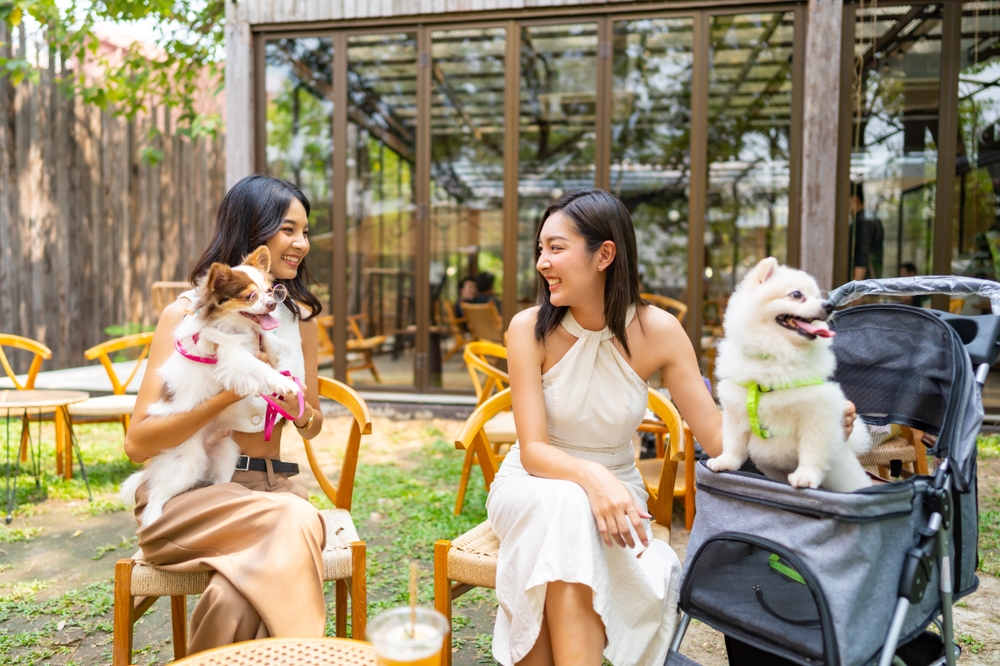
3. Use Positive Reinforcement
When your dog behaves appropriately, you should reward them with treats. Even if your dog is scared, praise them and let them know everything is fine by giving them treats.
If you can get your dog to associate meeting new people with getting a treat, their excitement will start to replace their anxious feelings.
Conclusion
Having a dog that’s scared of strangers is frustrating, but keep in mind that they’re not doing it to annoy you. They’re scared and anxious. Fortunately, with proper professional guidance and training, you can help them overcome their fear.
Stay patient, positive, and loving, and maintain daily training and socialization sessions. Before long, your pup won’t have any trouble making new friends!
Featured Image Credit: p.s.stasya, Shutterstock

